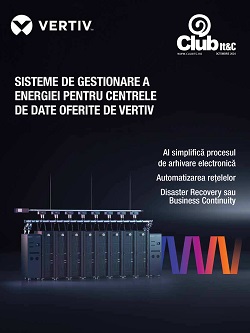In the context of the blocking of Romania’s entry into the Schengen Area, the goods transport industry loses a series of benefits that would have reflected positively on the entire business environment, on numerous local businesses that depend on import and export and implicitly on the Romanian economy, according to DSV Road, the third largest global provider of transport and logistics services in Europe. The company estimates that the accession to Schengen would generate an average growth of its business by 20%, growth that can be similar to other companies on the market and in the transport industry.
According to the representatives of the DSV Road company, operating in Romania since 1994, Romania’s presence in the Schengen Zone offers a number of advantages to the local transport industry, such as the elimination of waiting time at the border and the increase of transport capacity and the volume of transported goods. Also, by eliminating borders, the number of international hauliers will increase, and fuel costs will decrease, given that the waiting time for trucks at the border, which is currently between 24 hours and 72 hours, will disappear especially at the crossing points to Bulgaria (Calafat-Vidin and Giurgiu-Ruse), but also to Hungary.
 “We are confident that a decision favorable to Romania will be made in the near future, considering that there will be new meetings at the level of European Union bodies. Romania’s entry into the Schengen Area will have immediate beneficial effects on the local transport and logistics market, accelerating the development of the local economy. It is very important that waiting times at the border will be significantly reduced, which produce cascading effects on the entire Romanian economy, which we all feel, both companies and individuals”, says Sergiu Iordache, Managing Director at DSV Road.
“We are confident that a decision favorable to Romania will be made in the near future, considering that there will be new meetings at the level of European Union bodies. Romania’s entry into the Schengen Area will have immediate beneficial effects on the local transport and logistics market, accelerating the development of the local economy. It is very important that waiting times at the border will be significantly reduced, which produce cascading effects on the entire Romanian economy, which we all feel, both companies and individuals”, says Sergiu Iordache, Managing Director at DSV Road.
Currently, because Romania is not a member of the Schengen Area, there are many negative effects on the transport industry, which are also felt by consumers. Exceeding daily driving times recorded by drivers, higher fuel consumption during the waiting period and delays regarding the delivery of goods to customers lead to problems in supply or in the running of some production processes, as well as increasing costs for end customers.
With the disappearance of the borders and implicitly the stationary times at the entrance to Romania, the transit times for the groupage lines of the DSV Road company to the west of Europe will be shortened substantially.
At the same time, Romania’s entry into the Schengen Area will increase external and internal competitiveness, optimize transport costs and increase local consumption.
Moreover, by joining Schengen, trucks will be used more efficiently and the number of drivers will increase. In Europe, the shortage of drivers increased by over 40% from 2020 to 2021, according to a study carried out by the International Road Transport Union (IRU), and with the elimination of borders, an improvement of up to 10% will be achieved.
In addition, by raising the borders, there will be greater fluidity of the European Union’s car fleet. Currently, there are blockages at the border also due to the EU Mobility Package regulation, whereby drivers are required to return to the country periodically, every few weeks.
 “As DSV Road Romania manages major distribution contracts in Bulgaria, the strongest impact will be the shortening of the time at the border. It is not a random example because the presence in Schengen will have an effect on short journeys, where the share of waiting time in the total journey time is higher. We want Romania’s accession to the Schengen Area to happen in the near future because it would be a beneficial change for any transport operator and any company, which will significantly influence the local economy”, emphasizes Mihai Teodorescu, Road Director at DSV Road.
“As DSV Road Romania manages major distribution contracts in Bulgaria, the strongest impact will be the shortening of the time at the border. It is not a random example because the presence in Schengen will have an effect on short journeys, where the share of waiting time in the total journey time is higher. We want Romania’s accession to the Schengen Area to happen in the near future because it would be a beneficial change for any transport operator and any company, which will significantly influence the local economy”, emphasizes Mihai Teodorescu, Road Director at DSV Road.
Also, the free movement of citizens in the Schengen member countries will increase the potential for citizens currently settled in Europe to return to Romania, believe the representatives of DSV Road, who want to attract to the team specialists from among Romanians who resettle in the country.
It is also essential that, due to the lack of borders and the reduction of transport time, the amount of carbon emissions will be considerably reduced, in order to protect the environment. Thus, DSV Road has taken important steps in reducing pollution by offering customers the opportunity to choose sustainable transport services.
In 2022, given the growing demand for multiple transport services, DSV Road expects a 40% increase in business compared to last year, estimating a turnover of 70 million euros.






























